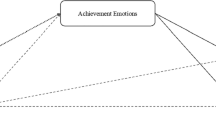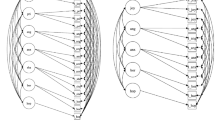Abstract
Arlie Hochschild has shown that there is a set of rules governing most life situations concerning the emotions that people involved in these situations should experience, and particularly the optimum pitch at which these emotions should be expressed. She shows further that people who experience emotions at a pitch lower than the optimum or higher, do “work” to come up to the optimum or down to it as the case may be. The fact that some people in the same situation, experience emotions at a pitch higher than the optimum and others lower calls for an explanation. Symbolic interactionists suggest that the level of the pitch experienced by the person is a function of the extent to which self is at risk. Where the person perceives his/her self concept to be at great risk, the emotional pitch experienced will be likely to be higher than the optimum expected in the situation. Conversely, where the person perceives little risk to his/her self concept, the emotional pitch is likely to be lower than the optimum. The focus of the paper is on the “work” done by students at examination times to cope with over anxiety (i.e. higher than optimum pitch) or, sometimes, what they perceive as an abnormal lack of anxiety in themselves (i.e. lower than optimum pitch). A great number of cases will be described and classified in an attempt to formulate generalizations concerning strategies that may be applied, not merely to the examination situation, but to the wider universe of emotional situations. Hypotheses are also offered to explain why more of the emotion work done is in the direction of suppressing over anxiety rather than the opposite.
Similar content being viewed by others
References
Albas, D., & Albas, C. 1984 Student Life and Exams: Stresses and Coping Strategies. Dubuque, IA: Kendall/Hunt.
Becker, H., Hughes, E., & Greer, B. 1961 Boys in White: Student Culture in Medical School. Chicago: University of Chicago Press.
Haas, J. 1978 “Learning real feelings: a study of high steel ironworkers reactions to fear and danger.” In J. Haas and W. Shaffir (Eds.), Shaping Identity in Canadian Society. Pp. 227–244. Toronto: Prentice-Hall.
Haas, J. & W. Shaffir 1978 Shaping Identity in Canadian Society. Toronto: Prentice-Hall.
1983 The Managed Heart: Commercialization of Human Feeling. Berkeley: University of California Press.
1979 “Emotion work, feeling rules, and social structure.” American Journal of Sociology 35:551–573.
Hoyenga, K., & Hoyenga, K. 1984 Motivation Explanations of Behavior: Evolutionary, Physiological, and Cognitive Ideas. Monterey, CA: Brooks/Cole.
Hughes, C., Tremblay, M. A., Rapport, R. & Leighton, H. 1960 People of Cove and Woodlot: Communities from the Viewpoint of Social Psychiatry, Vol. 2. Stirling County Study. New York: Basic Books.
1983 “Reply to Hochschild and Hunsaker.” American Journal of Sociology 89(2):440–443.
1978 “Towards a sociology of emotions: some problems and some solutions.” American Sociologist 13(February):30–41.
Olesen, V. & Whittaker, E. 1968 The Silent Dialogue: A Study in the Social Psychology of Professional Socialization. San Francisco: Jossey-Bass.
Schachter, S. 1959 The Psychology of Affiliation. Stanford, CA: Stanford University Press.
Simmel, G. 1950 The Sociology of Georg Sinmel. Translated by K. Wolff. New York: The Free Press.
Author information
Authors and Affiliations
Additional information
This article is a revised version of a paper presented at the 1987 Canadian Sociology and Anthropology Annual Meetings, McMaster University. We thank D. Rennie and R. Clifton, the editors and anonymous reviewers forQualitative Sociology for their insightful comments and suggestions.
Rights and permissions
About this article
Cite this article
Albas, C., Albas, D. Emotion work and emotion rules: The case of exams. Qual Sociol 11, 259–274 (1988). https://doi.org/10.1007/BF00988966
Issue Date:
DOI: https://doi.org/10.1007/BF00988966




